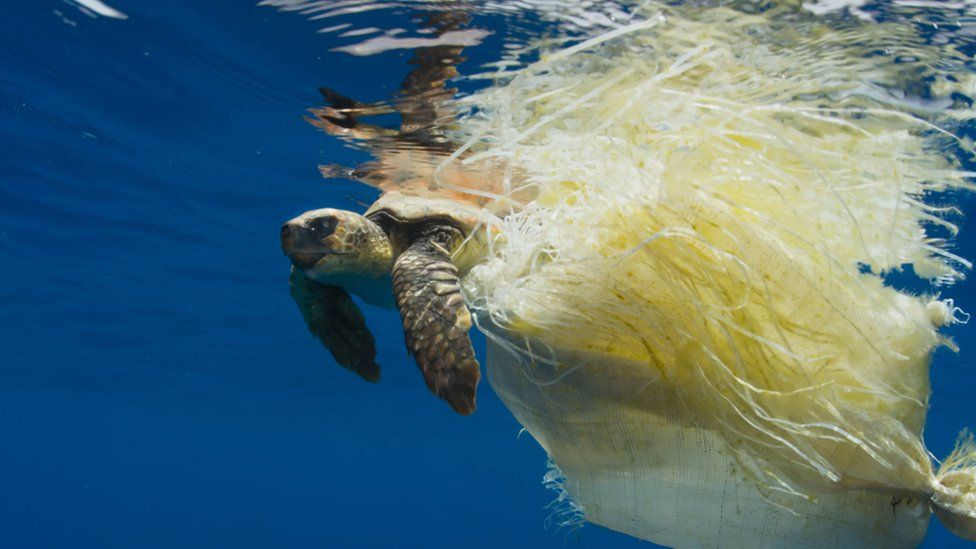“As life returns to normal, it’s crucial for companies and consumers to dramatically cut down on plastic production.”
.
Remember Blue Planet II?
Futures Forum: Blue Planet II > How plastic is slowly killing our sea creatures, fish and birds
During the pandemic, we learnt to rely on plastic – but there have been costs, as reported this week in the Guardian:
In the two years leading up to the pandemic, the public backlash against plastic was a major concern for industry leaders. As a corporate executive remarked during an industry event early in 2019: “We need to get the image of plastic in oceans out of the public’s mind. Otherwise, we could lose our social licence to operate.” Of course, the pandemic did not take the image of plastic in oceans out of the public’s mind. However, it did highlight in a very real and urgent way the importance of many plastic products for healthcare and hygiene. At the virtual World Petrochemical Conference in April 2020, an industry analyst commented on this unexpected shift: “Ironically, sustainability, the issue that was dominating the conversation until just a few weeks ago, seems to be fading into the background, at least for the moment. And polyethylene may even be gaining some public favour as it plays a high-profile role in combating the greatest health risk to our planet in modern history.”
How the plastic industry turned the pandemic to its advantage | Plastics | The Guardian
And a piece out yesterday says it’s only got worse:
Plastic filled our lives during the pandemic, littering our world with N95 masks, take-out containers, and single-use grocery bags. While the world was fixated on the global health crisis, the plastic crisis only got worse. Plastic products like PPE and disposable packaging were marketed as tools in the fight against COVID-19.
In a new book, Plastic Unlimited, researcher Alice Mah says it didn’t have to be this way. (We published an excerpt of her book here.) She argues that plastic corporations knowingly pushed false claims about the benefits of plastic during the pandemic in order to increase sales. And as life returns to normal, she says it’s crucial for companies and consumers to dramatically cut down on plastic production.
In the meantime, we can reduce the impact of all this plastic.
Here’s a very practical guide from a product supplier:
With PPE serving such an important role in the fight against the virus, it would be foolish to suggest an outright reduction in usage. The trick heading forwards is understanding how to properly manage and sustain the equipment we’re wearing. In this guide, we’ll look to do just that. With a focus on the current impact of PPE on the world, we’ll assess how you can responsibly manage your wastage, as well as the safest ways to dispose of the equipment you have used…
